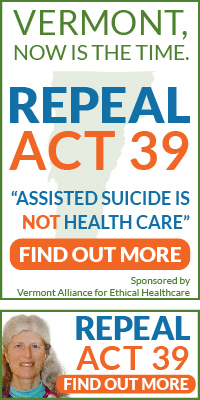The article linked below appeared in the New York Times on April 18, 2014.
The trend it describes, of medical groups, individual doctors, and insurance companies making treatment decisions based on cost rather than effectiveness is dangerous in itself but would be much more so in the presence of legal assisted suicide. The article describes the decisions as being made entirely by professionals, not by patients themselves. Similar professionals were behind the letters Barbara Wagner and Randy Stroup received from the Oregon Health Plan denying coverage for possibly life-prolonging and pain-relieving chemotherapy and offering a list of “comfort care” alternatives, including assisted suicide.
Legal assisted suicide gives doctors and insurance companies even more power over life and death than making treatment decisions on their own already does. Doctors choose who is and is not eligible for lethal prescriptions. In some states, like VT, the law requires doctors to inform patients that assisted suicide is an end of life option for them, while allowing the doctors complete discretion about how to present this option. Death for patients whose treatment might be very expensive is going to be very tempting to doctors who believe that they “understand that we doctors should be and are stewards of the larger society as well as of the patient in our examination room”. After all, death will always be the very cheapest alternative, and these doctors already seem to be blind to the damage they are doing to “the larger society” by putting economic concerns ahead of patient well-being.
True Dignity respects the need to cut costs by eliminating medical wastefulness, but the article talks about denying treatment that is effective in order to cut costs. To us that seems like wasting the lives of human beings, either by not even telling them about treatment that might help them, by denying insurance coverage of it because other goods are considered more important, or by steering them toward death instead of any treatment at all.

